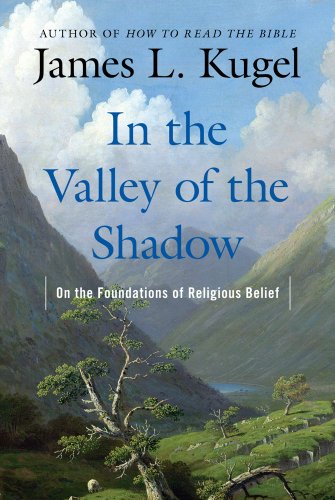
 It's hardly surprising that a distinguished biblical scholar would mark the decade he's survived a bleak cancer diagnosis with a spiritually tinged reflection. But James Kugel's (How to Read the Bible) latest book is far from an inspirational memoir of grave illness and seemingly miraculous recovery. Instead, Kugel--a former Harvard professor and now director of the Institute for the History of the Jewish Bible at Bar Ilan University in Israel--mines his experience to yield an invigorating exploration of the nature of the self, impressive for its marshaling of disciplines from anthropology to neuroscience to literary criticism in aid of examining the concept of the divine and the nature of religious faith.
It's hardly surprising that a distinguished biblical scholar would mark the decade he's survived a bleak cancer diagnosis with a spiritually tinged reflection. But James Kugel's (How to Read the Bible) latest book is far from an inspirational memoir of grave illness and seemingly miraculous recovery. Instead, Kugel--a former Harvard professor and now director of the Institute for the History of the Jewish Bible at Bar Ilan University in Israel--mines his experience to yield an invigorating exploration of the nature of the self, impressive for its marshaling of disciplines from anthropology to neuroscience to literary criticism in aid of examining the concept of the divine and the nature of religious faith.
When Kugel was informed in 2000, at age 54, that his cancer had advanced to the point he reasonably could expect "two years without debilitating symptoms," he likened the sensation to the "feeling of the background music stopping and the feeling of smallness, of discreteness, that accompanied it." In sensing that, Kugel believes, he was able to intuit the way humanity has lived for most of recorded time, in contrast to our "modern way of seeing, or not seeing, very much tied to the sealed-off self."
Kugel's relatively brief study is, in truth, a whirlwind journey across cultures and time to assess this contrast. Whether he's writing about what he calls the "semipermeable soul" of Tasmanian hunter-gatherers, the "starkness" embodied in the words of "Amazing Grace" or the impenetrability of contemporary medical "magic," he circles back to a recurring theme: the notion that for all the achievements of the "large," modern self--whose corollary characteristics are a sense of isolation and self-importance--we have sacrificed something of intrinsic value. Drawing inspiration from writers as diverse as Boethius and William James, Kugel's discussion transcends the capacious discipline of biblical studies to make that point.
Despite his grounding in a religious tradition, Kugel doesn't offer his experience as an exemplar of faith (when he received his diagnosis he confesses to calling to mind some pedestrian English poetry and not the Psalms he has committed to memory). His is a restless, questioning intellect, unafraid to examine its own beliefs with clarity and insight. Thus, In the Valley of the Shadow stops short of a direct rebuttal to atheists who advance the notion that faith is little more than a delusion possessed of what Kugel calls, with a hint of irony, "missionary zeal."
The world James Kugel visits in these pages is suffused with phenomena--angels, omens, magic--that strike our rational, Western minds as alien, even primitive. But just as no doctor could offer an explanation for the disease that afflicted him, his "cure" seemed equally mysterious. While he hardly would propose, even if it were possible, a return to the worldview of our ancient ancestors, he does suggest that tempering our fretful, self-contained consciousness with some sense of the enigma that is human existence might bring a profound richness to our lives.--Harvey Freedenberg
Shelf Talker: A distinguished biblical scholar uses his experience of illness to explore our understanding of the self and the nature of religious belief.

